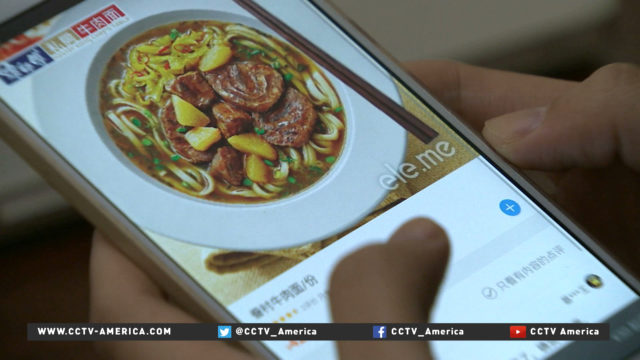An economy geared at lazy person in all of us is gaining traction in China. Known as online-to-offline commerce or the lazier “O2O”, companies offer consumers the ability to order online products to enhance their offline experiences — covering nearly every aspect of life. The market size of this commerce is estimated to reach more than 410 billion yuan ($63 billion).
CCTV’s Tao Yuan reports from Beijing.

Booming O2O business model caters to China\'s lazy person economy
An economy geared at lazy person in all of us is gaining traction in China. Known as online-to-offline commerce or the lazier "O2O", companies offer consumers the ability to order online products to enhance their offline experiences -- covering nearly every aspect of life. The market size of this commerce is estimated to reach more than 410 billion yuan ($63 billion). CCTV's Tao Yuan reports from Beijing.Food is one of the industries that first tapped for this growing online market. Smartphone apps such as Ele.me, or Hungry, are making it possible for people to enjoy food from nearby restaurants, without having to leave the comfort of their home.
And it’s not just food. Companies such as E-Jiajie, or E home clean, are also providing housekeeping services at a click.
Eric Schiffer of Patriarch Equity on lazy person commerce in China
For more on the popularity of this new business model, CCTV America’s Michelle Makori interviewed Eric Schiffer, CEO of private equity firm, Patriarch Equity.

 CGTN America
CGTN America
